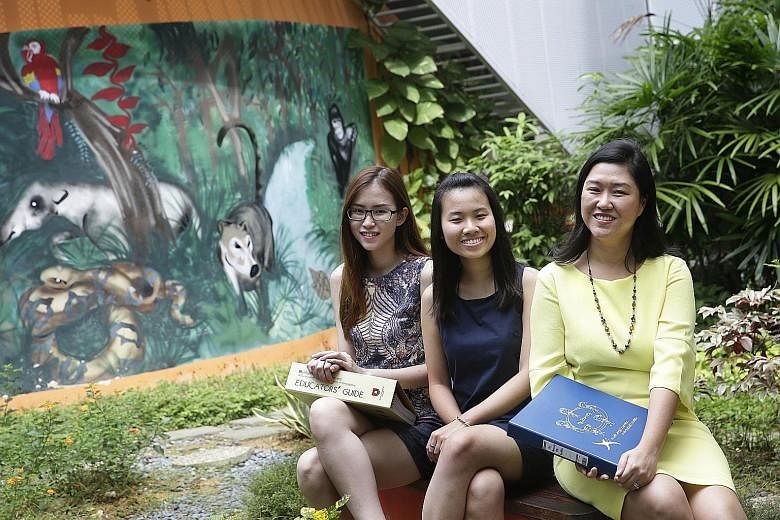A four-year-old programme to help underprivileged children in pre- schools has reaped benefits, and is now being extended to ensure that the beneficiaries transition smoothly into Primary 1.
The Circle of Care (COC) programme, involving 140 children at 10 pre-schools, has social workers and educational therapists working alongside pre-school teachers. They identify the causes of a child's difficulties and provide help on different fronts.
The scheme, piloted by philanthropic group Lien Foundation and welfare organisation Care Corner, has led to higher rates of school attendance and learning gains among the at-risk children receiving help.
Now, to ensure that the gains do not fade out, the pre-school teachers and social workers who worked with the children will collaborate with primary school teachers and counsellors to continue supporting them until they reach Primary 3.
COC programme manager Lynn Heng said 39 of the 140 children receiving help are heading to Primary 1 next year. All the children have progress reports prepared by the pre-school teachers, educational therapists and social workers, which will be shared with the primary schools they are going to.
Besides detailing the gains that the children made in literacy and numeracy skills, the reports give information on other skills that are important for learning, such as the ability to pay attention. Prepared with the children's parents, the reports also provide information on how the parents can be helped to support their children's learning at home.
At two primary schools, Lakeside Primary and Gan Eng Seng Primary, which are receiving 12 of the children next year, the collaboration will be more structured and deeper.
COC teachers and social workers have been meeting the teachers and school heads of the two schools since September to share information about the children and look at how various kinds of support can be given to them and their families.
Mrs Heng said: "Some of them come from difficult home circumstances. It is important that there are various kinds of support in place to enable the family to help the child. I have seen some children make good progress in pre-school, only to slide back when they enter Primary 1."
Mrs Wang-Tan Sun Sun, principal of Lakeside Primary, said the meetings have been useful for the Primary 1 teachers who will be receiving five children from the COC programme.
"We get a head start in addressing the specific needs of these children and their families," she said, adding that the school staff already hold regular meetings to discuss how children with learning or emotional needs can be given extra support.
"Now, we have input from the pre-school teachers and social workers who have worked with these children and their families, and together we can come up with ways in which we can help these children progress."
Madam S. Khafifah, 46, a single mum whose daughter is on the COC programme, is glad she got to meet a school teacher and the principal of Gan Eng Seng Primary last week.
"As a hawker assistant, I don't make much and I work until 9pm every night. So I was glad to hear about all the financial help I can get. The books alone add up to a lot. I am also happy that my daughter can go to the student care centre after school hours."
Lien Foundation chief executive officer Lee Poh Wah said the extension of COC to primary schools ensures continuity of support and builds on the children's hard-won progress made in pre-schools.
For instance, the teacher may notice that a child is unable to pay attention in class because she is overly anxious. The social worker, after investigating the cause of the child's anxiety, will then bring together different aspects of care - ranging from educational therapy to nutrition to parental counselling - to help the child.
Mr Lee said: "While pre-schools may do their best to prepare at-risk children for Primary 1, the primary school system must be... ready to better support their needs."
He stressed that primary school education must be "a more effective equaliser - where all children gain equal opportunities to achieve their true potential".
"For education to make a difference, we also need to pay attention to what goes on outside the schools, be it a poor living environment or toxic stress of families under strain," he said.


